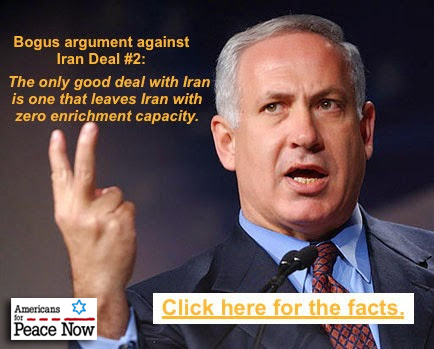 The only good deal with Iran is one that leaves Iran with zero enrichment
capacity.
The only good deal with Iran is one that leaves Iran with zero enrichment
capacity.
- Zero enrichment – the demand that not a single centrifuge is left spinning in Iran – is neither an achievable nor a necessary goal of negotiations.
- It’s not achievable because just as P5+1 negotiators must get a deal they can “sell” to their constituencies, Iranian negotiators must be able to sell a deal to their own constituencies as meeting their own red lines (most notably, sufficient capacity for legitimate domestic energy production and legitimate R&D purposes, preserving what Iran views as a sovereign right to enrich, and assuring that Iranian pride in the nation’s scientific advances is left intact).
- It’s not necessary because assuming “zero enrichment” is genuinely shorthand for “the best possible guarantee that Iran’s nuclear program will remain peaceful,” this goal can be achieved through a nuclear agreement that includes strict limits on Iran’s enrichment capacity and stringent safeguards and transparency with respect to Iran’s nuclear facilities and materials.
- Insisting on “zero enrichment” guarantees that such limits and safeguards are absent. Demands for zero enrichment as a condition for a deal are tantamount to rejecting any agreed-upon, negotiated solution with Iran. Alternatives offered by advocates of a zero-enrichment red-line consist of fantasy and wishful thinking (“more pressure and Iran’s government will give in or be overthrown) and war-mongering (“military action can remove the threat of a nuclear Iran”). Both approaches would likely exacerbate, rather than curb, the Iranian nuclear threat.
Click here for our full report covering the 11 most common bogus arguments Israeli Prime Minister Netanyahu and other opponents of an Iran deal are making.